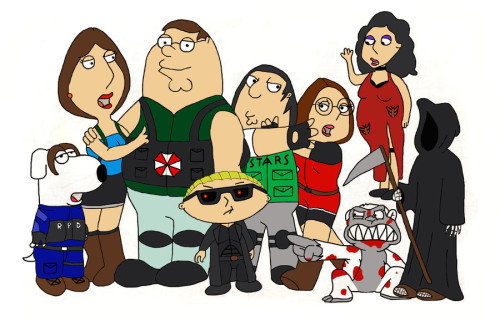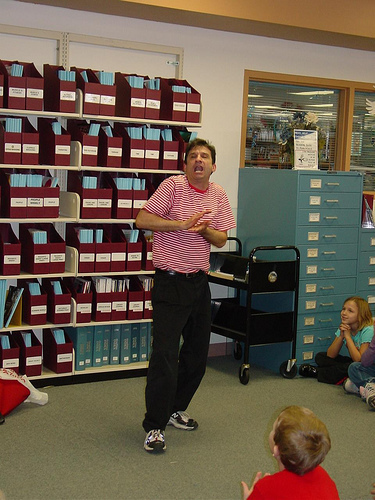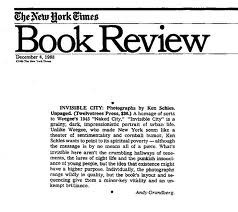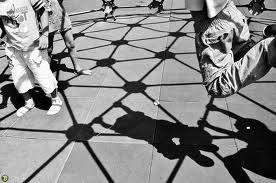P.A. Wilson's Blog, page 19
February 11, 2013
Work at home, fewer hours a dream
 Tired of the nine to five? Thinking about becoming a work at home entrepreneur? Those affiliate sites are not telling the whole truth – I’m sure you guessed that. Nine to five is a luxury when you drive your own schedule.
Tired of the nine to five? Thinking about becoming a work at home entrepreneur? Those affiliate sites are not telling the whole truth – I’m sure you guessed that. Nine to five is a luxury when you drive your own schedule.
Work at home, the freedom and the responsibility
Let’s start by making it clear that I love working from home. I’m well aware of my challenges and I always find myself shaking the imaginary finger in my face – focus, young lady.
The freedom from the 9 to 5 is hard to ignore. It’s not the hours so much it’s the being on the same schedule as everyone else. On the road at the same time, at lunch at the same time, on vacation based on the tiny window allowed in the company schedule.
The responsibility is something you need to be comfortable with. I have a friend who reminds me periodically that we only eat what we kill. A little graphic perhaps, but as an entrepreneur, I have to find my next client and my next client. If the thought of doing that keeps you up at night, stay employed.
The creative opportunities
When you work at home, it can free your mind. I don’t know how I would have published 9 books – with more on the way – if I had to commute to an office every day. I commute no more than 10 feet now and if there’s some kind of obstacle, it means I probably need to clean the house.
If you have a desire to be creative, there are some surprising benefits to being a work at home person – even if you aren’t an entrepreneur. You have space in your day to brainstorm. You can move your schedule around – to some extent – and be creative when you feel creative.
You network with people – you might find yourself re-enacting The Shining if you don’t get interaction. People love to share their ideas. You have time to consider new pathways. You have time to consider partnerships. Basically you have time.
Work at home and The Boss
We’re not talking Springsteen here, we’re talking you. You are now the boss. It’s kind of like when you hear your parent’s voice coming out of your mouth. The things you hated about your last boss, are the things you need to inflict on yourself.
If you procrastinate, you get nothing done because you only answer to you. A morning watching TV or playing Angry Birds, can easily turn into a week.
Having all the time in the world to practice your creativity can actually damage the product. There’s something about having a scarcity of time that can drive you to excellence.
Work at home and make millions!
Not a real thing. Yes there are people who make money on affiliate sites, but they work hard at keeping their SEO high (don’t know what SEO means? You need to learn about it if you plan to do on-line marketing).
Work at home and enjoy your work more? Maybe. It did work for me. If you do a bit of soul searching and if you want to be an author or artist or musician, think about taking the plunge.
The post Work at home, fewer hours a dream appeared first on P. A. Wilson.
February 8, 2013
Family day, a time to connect
This weekend is our first Family Day in British Columbia. A time to hangout with your family – the one you were born into or created. Or is it an opportunity to create the new rules?

Family Day as an opportunity
We all have traditions relating to the holidays. I wrote about this in my post about tradition.
This new holiday comes as a blank canvas. What could your family write on that canvas. Family Day, is it a day of fun? A day when no one works? When games are played?
The purpose of long weekends
Theoretically, a long weekend is about rest, recharge, and reconnect. Family Day was created for two reasons. First we apparently needed a long weekend in February – it’s sometimes a long ride from New Year’s to Easter. And we needed time to connect with our families.
Regardless of why the holiday was created, it’s a long weekend in a dreary time of year. It’s as good an opportunity to hibernate as it is to celebrate.
Our family
My family consists of three blood relatives, an in-law, and up to 4 friends as family. The core family is the Canadian contingent – many more relatives abroad. We started a new tradition as my parents aged that we would take turns hosting holidays. The format can change, but it generally means food and fun. We play games and we laugh and drink wine.
We’re a pretty simple group of people.
Your family
It intrigues me to hear how other people define family. Is your family day about blood relatives and in-laws? Do you have a structured agenda for the day? Are there so many of you that you need to rent chairs? Many of my friends have no traditional family. They gather in groups that change from two or three people to 10 or 12 or sometimes more.
Your traditions
If you are a family heavy in tradition, so much so that expectations are high when you host a holiday event, can you take a wild step outside the box and surprise everyone?
This last Christmas, my sister hosted (well, she kind of sneak hosted) and she surprised us with ham instead of turkey. How would that have gone over in your home?
If you are celebrating in British Columbia, have a great Family Day. If you are in the rest of Canada, enjoy yours on the 18th.
The post Family day, a time to connect appeared first on P. A. Wilson.
February 5, 2013
Storytelling a tool for learning
 Storytelling is an old tradition that was always about more than just entertainment. Oral histories are all about stories because people remember something more clearly if it comes wrapped in a story.
Storytelling is an old tradition that was always about more than just entertainment. Oral histories are all about stories because people remember something more clearly if it comes wrapped in a story.
The concept of storytelling
I learned this concept at a seminar on building memories. We were learning about mind mapping as a tool. The presenter used mind maps to model every presentation he did. To show us the effectiveness, he told us a story of the solar system. The audience admitted to knowing what most of the planets were, but they were iffy about the order of the planets.
His story stuck with me all these years – at least 25 so far. The solar system is like a neighborhood.
In the first yard is a shiny little ball of Mercury, next door is a beautiful woman named Venus, who picks up the ball thinking it would make some lovely jewelry. It is hot and she tosses it over her shoulder into Earth’s garden. Earth doesn’t want that metallic object in the center of his organic garden so he tosses it to his angry neighbor, Mars.
Mars is all red faced and angry so he bats the ball across to his giant neighbor, Jupiter who thinks the ball would look lovely in the ring of his neighbor Saturn. She looks up and sees her friend in the sky, Uranus, and shows off her new bauble. Before Uranus can say anything, the last neighbor on the street Neptune picks the bauble up on his trident and offers it to his little dog Pluto. Yes, there were 9 planets when I heard this story.
The point is that memorizing the nine planets is one way to do it, but storytelling gives you some action to hang onto. If memorizing names worked every time, we would all know the seven dwarves, and the 9 reindeer.
Try storytelling for things you need to know
The trick is to find an analogy – the solar system as a neighborhood, and then build a thread through the information until you have a story.
The solar system story used links like Earth being an organic garden, Pluto being a dog (Disney). It used the travel of the bauble as plot and the final snatch by Neptune as the climax.
Storytelling doesn’t have to be subtle, it doesn’t have to be great. It just builds a framework for information.
The post Storytelling a tool for learning appeared first on P. A. Wilson.
February 2, 2013
Book Reviews, the controversy
It sometimes seems like there are more opinions on how to do book reviews than there are books to review. Okay that might be an exaggeration, but it’s a hot topic that ebbs and flows in the world of authors.

Three types of book reviews
The three most common types of reviews seem to be, fan review, amateur review, and professional review.
As an author, you are told you need reviews to help new readers to find your books. If you are at all savvy you know that only 5 star glowing reviews is a red flag. You need the 3 and 4 star reviews. You don’t really need the one and two star ones but sometimes they do contain a bit of information you can use.
The fan review sometimes isn’t helpful to the new reader. It can be gushy and just talk about how much the reviewer loved the book. I’m not saying these aren’t useful. They are good for the ego, if nothing else. Please feel free to gush over my books.
The amateur reviewer will generally do an analysis and comparison of books. Helpful to readers because they get a reason why the book is good, or not. The amateur will often stick to a genre giving book reviews on just paranormal fantasy, for instance, or will list a wide variety of genres they love. Occasionally the reviewer will let a spoiler slip, but my experience is they genuinely want to recommend books.
The professional reviewer will dance to the tune of the employer. Not a bad thing, but they tend to stick with the traditionally published books. Some will conduct an analysis worthy of a PHD candidate, some will enjoy a rant and others will try to be balanced in their reviews.
To pay or not to pay
This is a tricky one, because everyone defines pay differently. Some organizations will pay a fee for a set number of reviews. They call them honest reviews, but for $300 to $1,000 I’m not sure anyone is really expecting anything other than a good review. At that price, the book reviews are tainted. Even if they are honest, there’s that sniff of bias.
Professional book reviewers are paid by someone. The key distinction is they aren’t paid by the author or publishing house. My take on that is still a bit of a taint on these. The publishing houses are advertisers in the paper, magazine or other format. So, if the publisher is dropping heavy coin on advertising, is the reviewer truly unpaid?
The other form of payment is very common, a free copy. I’ve done this form of payment multiple times. To be honest, the free copy doesn’t cost me much – and if it’s an ebook, it cost me nothing. I’ve had reviewers take the free book and never review it, or take the free book and give it a lukewarm reception.
Do reviews help you find a new book?
It’s true that the number of reviews and the rating will push a book up the list on Amazon or other retailers. The thing is I’m not sure people use those lists to find a book. I know I find authors by taking advantage of free books from places like Freebooksy and ereader news today – yes I kiss a lot of literary frogs, or rather read a few pages and delete them from my Kindle. Then I will buy more of the book from authors I like. I use reviews to tip the balance on books I pay for.
How do you use book reviews?
The post Book Reviews, the controversy appeared first on P. A. Wilson.
January 30, 2013
Networking, the human touch and creativity
 There are few people these days who don’t need to do a little networking now and again. Meetup is a huge success, not because people want a hiking partner, but because they are looking for some human connection that gives them perspective, encouragement, or a new outlook on an old problem.
There are few people these days who don’t need to do a little networking now and again. Meetup is a huge success, not because people want a hiking partner, but because they are looking for some human connection that gives them perspective, encouragement, or a new outlook on an old problem.
The fear of networking
As a business person, and when I was employed by an organization, my fear of networking was about having to ask someone for something; a referral, a lead, a contract, or even a job.
Networking is a bit like sales in that regard. The image that comes to mind is always the pushy salesman, or the networker who walks away with 50 business cards and doesn’t know what to do with them.
Does it have to be that way? I don’t think so. I network with business people and with writers. I find the best ideas for books or new ways of running my own consulting firm, just by talking.
The need to network
As a species, we are generally social. I know some of us would rather work alone – writers are a great example.
A group of writers (anthology of writers?) sitting in a room together writing, are really sitting alone in that group. Focus on the work is so tight, you hardly hear the keyboard clicks of the other authors. When the writing break comes, we talk. We talk about our hobbies, we talk about TV, and the latest scandal in the publishing world – I know you are so jealous of our high powered life – but most of all, we talk about our writing. How do we get better at our craft? Who has found a way around a stumbling block. Who has advice?
Business networking can be a structured passing of cards and practicing your pitch, or it can be a babble of discussion around current economic events, changes in the market, successes of colleagues… pretty much anything. Making the connection is far more important than getting a business card.
Tips for networking
Make it about you helping people – don’t be shy about what you do, or what you need, just frame it in a ‘how can I help you’ approach. You might feel more comfortable and less like you are begging for help.
Make it as much about the other person’s needs as it is about yours
Find the right group – don’t push yourself into a referral mill type of networking if you really are more comfortable in the social style connections.
Push yourself to try. Even if you just stand there in the corner you will get something out of a networking group. And at social style networking groups, someone will always come over and strike up a conversation.
Networking is about human contact. By connecting with other people, you stimulate something inside yourself. Perhaps that will be a creative spark, or just a higher sense of confidence. Have fun!
The post Networking, the human touch and creativity appeared first on P. A. Wilson.
January 27, 2013
How to stay focused; distractions can’t be avoided, so manage them
You can find all kinds of advice on avoiding distractions. I think the best tips on how to stay focused are based on the fact that you can’t avoid distractions, you can only man age them.
age them.
Why you can’t avoid distractions
So many of the tips you can find about how to stay focused treat the distractions as the enemy. The pundits tell you to turn off the TV, music, Facebook, Twitter… whatever the current social media or game happens to be, and then to turn your mind to the task.
For me the distractions are about three things – unless there’s an underlying medical condition.
What you would rather be doing
What your mind is throwing at you as possible solutions, new ideas or perspective
Your inner critic who is trying to make everything perfect the first time
All three types of distraction rebel against avoidance and most of the tips that tell you how to stay focused deal with distractions in one way.
How to stay focused, my experience
Over the years, I’ve dealt with distractions in the workplace, in the creative process, in business and in personal settings. I’m currently balancing, personal life, running a consulting business, writing and publishing books, and starting up a whole new business partnership. I’ve had to learn how to stay focused just to survive.
Here are my tips for the three distraction types.
You would rather be doing something else: I tend to use this distraction as a reward system. If I would rather be reading a book, going out with friends, I give myself a time limit to do my chore in. I also use my PVR extensively – there’s really no reason to allow the networks to determine your schedule if you are a TV watcher.
Your mind throws all kinds of ideas at you: this distraction group is a bit more tricky. Sometimes the ideas are good and sometimes they aren’t; sometimes they are pertinent to your current task and sometimes they are all about a different task all together.
I start by writing down any idea that seems interesting – getting it out of my mind onto paper seems to solve the problem temporarily. Anything that looks like it pertains to the task I’m doing gets a few minutes consideration – I use what is valuable and can toss what isn’t. Anything that is about a new idea or another task gets put aside for later.
Your inner critic is holding out for perfection; I wrote about this in another post. There’s nothing that works better to quiet my inner critic than a quick thought of thanks for the information. Your inner critic isn’t usually trying to undermine you, but is trying to help.
Focus and the creative process
One of the questions that authors get is ‘where do you get your ideas?’. Frankly, I get way too many ideas. Every story brings forth 5 or 6 new ideas for other stories. For the author, managing distractions is often about juggling projects and ideas than it is about doing ‘research’ rather than writing, or rewriting.
No one wants to stifle the ideas. This is the source of all of our creative production. Taking the ideas and quickly making a few notes in a folder, notebook, or document, is the only way to keep the flow coming without completely stopping your current project. What amazes me is the quality of these ideas. When I go back and review them, there are gems that make some of my works-in-progress better, there are fabulous new story ideas, and there are some that need to be erased from existence.
In the end, the best tips on how to stay focused are not about subtracting anything from your life; they are about valuing everything at the right time.
The post How to stay focused; distractions can’t be avoided, so manage them appeared first on P. A. Wilson.
January 24, 2013
Bookstore survival. Is there a reason to be worried?
 Here’s another opinion piece about bookstores. B&N getting out of the bricks and mortar? Some would say it’s karma. They were the villain not that long ago.
Here’s another opinion piece about bookstores. B&N getting out of the bricks and mortar? Some would say it’s karma. They were the villain not that long ago.
It seems that everyone comes at this problem from a different point of view. The challenge here is that the market is deciding on the best place to get books. That’s what it’s supposed to do. It’s not about books disappearing, it’s about the changing model of book selling.
The bookstore as the community
This bookstore closing activity is like the reverse of You’ve Got Mail. Suddenly the places that survive – even thrive – are those that have a community connection. Barnes & Noble is just an example of the type of store that is great when it comes to efficiency and selection, but when you are inside, it could be anywhere in the world.
The indie bookstore is doing okay because of what else they offer. Is it about having readings? Is it about running contests? How about having a live podcast recorded in the bookstore? How about some stand-up comedy?
The flexibility of the indie store is what gives it that charm you’ll never find in B&N or Chapters.
The death of bookstores does not equal the death of books
So we heard this about music when artists turned to digital downloads. Losing the record companies didn’t kill music. In fact, did we really lose the record companies? The form of an LP or a CD is just that, a form. As long as there’s a market, and it’s economically viable, there will be LPs and CDs available. If that’s on-line at Amazon, or in HMV it doesn’t really matter.
Books are a form of story. I read only e-books now. Although my mother just gave me a book made of paper which I will read on takeoff and landing until the FAA catches up with technology. I see the book as a format for story. Story comes in movie, TV, book, ebook, song, aural formats. The book will not die with the death of Barnes & Noble bricks and mortar.
How to save your bookstore – big box, or indie
Do I really have to say this? Buy books from them. When anyone says the market is deciding, they mean you and me. We decide by where we spend our money. If you really want that local B&N to continue, rally people to purchase the products there.
The post Bookstore survival. Is there a reason to be worried? appeared first on P. A. Wilson.
January 21, 2013
Listening, if characters did it there would be no conflict
 Lack of listening skills is a great thing in story conflict, but it’s not the way to get things done. When people only wait for their turn to speak, no communication happens.
Lack of listening skills is a great thing in story conflict, but it’s not the way to get things done. When people only wait for their turn to speak, no communication happens.
What happens when no one is listening?
In fiction this can create a great story. Two people who seem to be communicating are talking at cross purposes. Both of them think they have agreed that the sun is hot, each of them thinking that they agreed something else. Hijinx ensue.
When it happens in life, it creates major problems because hijinx do not make for good relationships, or for effective work. Like most things, what works for fiction doesn’t come close to working for life.
Waiting for your turn to talk
Another thing that can work well in fiction. This is when each person has their position and then just waits to explain it. In fiction this this when the interfering mother, father, sister, brother, whoever keeps pushing their agenda despite the evidence that they aren’t going to get their way.
Fiction is no excuse for real life
In a post earlier this week, I talked about how real life isn’t an excuse for poor story telling. The reverse is true, with much bigger consequences. When you find yourself reading a book that drags because it is too factual and not entertaining, you can stop reading and the problem is done.
When it happens in real life, you can spend hours, or days, finding out what the real issue is. By the time someone realizes what’s happening, relationships end and wars start – oops that might be the fiction writer in me.
What’s the deal?
When you find yourself having the same argument over the oddest things, you might be dealing with someone who isn’t listening, just waiting their turn to talk.
The post Listening, if characters did it there would be no conflict appeared first on P. A. Wilson.
January 18, 2013
New book launch an exercise in patience
If you are on my newsletter list, or have been on the home page, you know that the 3rd book in the Madeline series is out in the world. It’s been almost a week since I pressed the publish butt ons on the new book, and the ebook is still not available at Apple or Barnes & Noble. Each time I go through this process, I learn a bit more about patience.
ons on the new book, and the ebook is still not available at Apple or Barnes & Noble. Each time I go through this process, I learn a bit more about patience.
A new book, or a new anything is an opportunity to learn
I approach things in process mode. Launching a new book is an example of a process I keep thinking I have down pat, and that I should be done with it in a few minutes over a few days. I always get into trouble with this expectation.
What I want to do is get you the information as quickly as possible – in my mind you are all panting for the new book. I take my checklist and run through it then start responding to problems; cover size not correct, formatting issues to be resolved, all things that get in the way. I’ve learned to just patiently work through each barrier – there doesn’t seem to be a way to get it right the first time – despite the fact I want to get writing on the next book.
What are lessons you learn over and over
It’s interesting that the human condition seems to be that we want to strive for control but make our worlds more complex and interrelated. We create the environment that opposes our desires. What is it for you? That thing that always slips out of your grasp.
Is it getting the kids to do their homework? Is it something at work, something that you do repeatedly that just doesn’t make sense?
Insanity: doing the same thing over and over again and expecting different results. Albert Einstein
I’ve given this some thought and I think many of us – including me – are capable of finding a different way to do things, but lack the patience to put in the effort. It’s always easy to plug the holes that appear than it is to prevent the holes from appearing.
Or it seems cheaper to keep repeating a process than it does to fix the holes. In my case, I could solve a big chunk of my new book publishing issues by doing two things. One, buy a Mac of some sort so I could publish directly to iBooks and two, move to the States so I could publish through B&N.
The thing is, it doesn’t make economic sense for me to buy a Mac to publish books – unless you buy way more of my books  . And I’m not on-board with moving my entire life to America for a few books sales through B&N.
. And I’m not on-board with moving my entire life to America for a few books sales through B&N.
Question of the day
Are you avoiding find a solution to the things that get in your way, or are you making balanced decisions to stay with the status quo because the value of change doesn’t match the price of change?
The post New book launch an exercise in patience appeared first on P. A. Wilson.
January 15, 2013
New Release, A Twist of Power book 3 of the Madeline Journeys
 A TWIST OF POWER continues the Madeline series about the ultimate fish-out-of-water – a negotiator more used to sly tactics in a magical world where the truth can be determined with a spell and prophecy is real.
A TWIST OF POWER continues the Madeline series about the ultimate fish-out-of-water – a negotiator more used to sly tactics in a magical world where the truth can be determined with a spell and prophecy is real.
Read it now on Amazon
THE NET HOLDS AGAINST ALL FORCES.
But not even Blu and Madeline’s combined magic can hold against an unknown attacker that threatens the life of Tadric, the sole heir to the Summer Lands.
Without him, the Lands will fall into the chaos of civil war, and the life Madeline has fought and suffered for will be lost.
They must find the source of the arcane assault that seems intent on taking the child’s life. Once again, Madeline leaves her home in the Lower Plains and ventures out on a dangerous quest – one that brings her to the City, a bustling port governed by intrigue, favors, and shifting alliances. A spectre from the distant past suggests that there is another who would lay claim to the Summer Lands, someone with malice enough in their heart to try to destroy a young boy.
While she searches for the attacker, some else in the City is hunting her in turn.
The Scree have not forgotten that Madeline killed one of their own, and they are not done with her yet. This time, she may not even have the advantage of magic – her power has turned fickle, and increasingly uncontrollable. It’s only a matter of time before she is caught with her guard down, and her companions may pay the price for it.
She needs to find and stop their mysterious enemy as soon as possible, before Blu’s magical strength is exhausted and he can no longer protect Tadric alone. She needs to keep her friends from danger – her husband, Jode, her former assistant, Simon, and Callisra the healer. She needs to discover the long hidden secrets of Tadric’s family before those secrets get them all killed.
Help is easily offered by newfound allies – Regis, a mage with unusual abilities, and Springheart, an elven wanderer. But who can Madeline really trust in a City where trust is bought and sold, and even her magic begins to fail her?
The answer lies in a twist of power.
The post New Release, A Twist of Power book 3 of the Madeline Journeys appeared first on P. A. Wilson.



